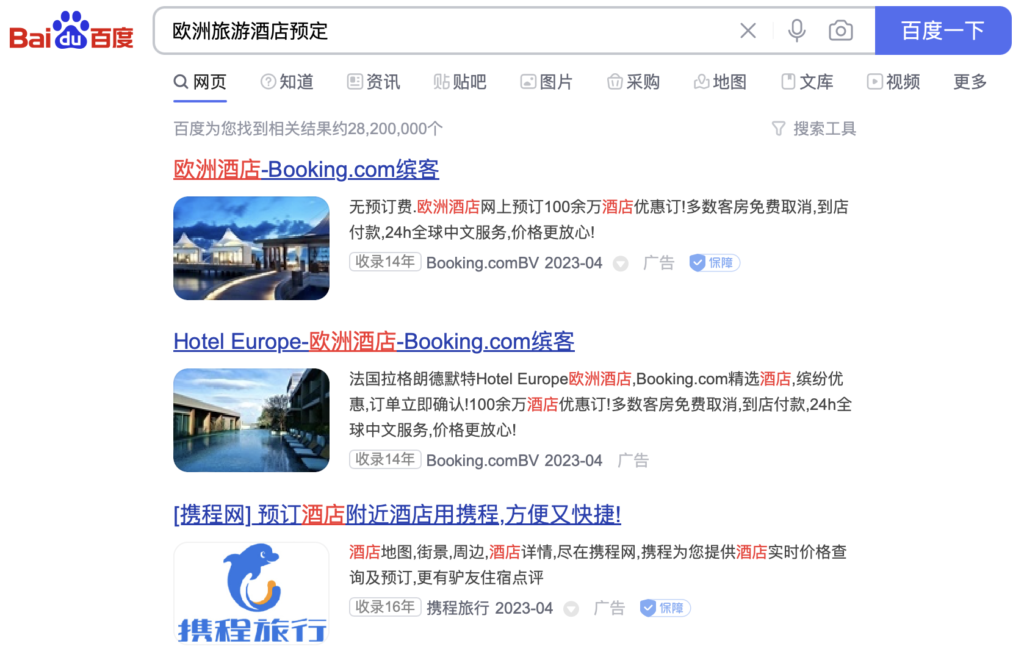China’s move away from restrictive policies swift recovery for tourism sectors in the countries that had relied heavily on outbound Chinese travelers before the pandemic. We can see reopening lifts China’s outbound tourism recovery. Then, how to market your hotel to Chinese outbound tourists?

Reopening lifts China’s outbound tourism recovery
For more than two decades, outbound travel from China was a major rising catalyst for global travel. It is an economic engine spurred by the emerging middle class in the country of 1.4 billion people. Before the Covid-19 pandemic, China was the world’s largest source of outbound tourists. It took 170 million trips and contributed $253 billion to the global economy in 2019.
China’s largest online travel agency Trip.com Group revealed the release of pent-up demand as the Lunar New Year holiday. The data marked the first major holiday following the removal of mainland China’s border restrictions. Overall outbound (non-mainland China) travel bookings on the platform grew by 640 percent compared to the 2022 Lunar New Year period. And outbound air ticket and overseas hotel bookings both increasing by over 400 percent.
How to market your hotel to Chinese Tourists?
FAST FACTS
- China is a country of 1.4 billion people and over 5,000 years of history. There are 33 provinces, municipalities, autonomous regions, and special administrative regions (SAR).
- The Chinese outbound market is set to grow further. By 2020 it is expected that more domestic travelers will graduate to overseas trips, pushing annual outbound traffic to 160 million.
- Fifty-six percent of travelers across all segments look for mid-range hotels. In pursuit of quality, 21 percent of aspirants seek luxury hotels, and base their choice on key opinion leaders and social media.

Marketing your hotel on online travel agents
Ctrip, Qunar and elong are the equivalents of Booking.com. Optimize your presence on these platforms will help your business in China.
Marketing your hotel on social media platforms
China’s internet population just passed a major milestone. According to the Chinese government, 802 million people are now actively using the internet, 57.7 percent of the population. Most interestingly, 788 million people are mobile users, a whopping 98 percent of the country’s total user base. WeChat, Weibo, Baidu and Ctrip are among some of the more predominant online tools Chinese consumers use.
Having a strong presence on social networks increases the chances of your hotel being shared amongst users social networks. The Chinese trust their friendship circle and family and are very influenced by others recommendations, experiences and opinions.
Weibo: Weibo is a micro-blogging platform which works in essentially the same way as the American ‘Twitter’. Users can exchange any type of content with their friends. With 500 million registered accounts it is the key social network to be engaging with if you are attempting to enter the Chinese market. Weibo is the place to keep your finger on the pulse of what’s popular in China. It’s a very ‘open’ social network and is therefore very effective for marketers.
Wechat: Customers can add and subscribe to your brand account using QR codes to spread the news about the hotel. Once customers are following your account you can promote special discounts or content exclusively for subscribers.
Have a strong presence on Chinese search engines
Firstly the Chinese consumer will use search engines in China (notably Baidu) to look for hotels. It is vital that you are one of the top hotels listed in the search results. Optimizing your status and presence on Baidu and other Chinese search engines is the first step. And you need to manage your e-reputation in China because brand is very important for Chinese consumers. You must have a good reputation to maximize the word of Mouth.

If you are looking for targeting Chinese outbound tourists, just contact Deep Digital China for further info.
